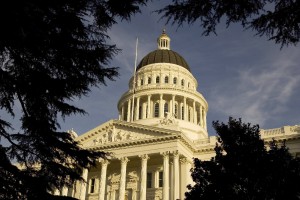The changes were suggested by the Brown administration as a way of relieving a potentially expensive state mandate on local governments. In an analysis of the new law, the independent Legislative Analyst’s Office said the annual cost of reimbursing cities’ and counties’ adherence to the mandates of the Public Records Act could be in the tens of millions of dollars. An LAO official contacted today said the state has never received a bill from local agencies for public record requests.
Peter Scheer of the First Amendment Coalition says the bill gives local governments a chance to create roadblocks to getting records.
But state Sen. Mark Leno, a Democrat from San Francisco who supported the bill, says changing the law’s requirements to “best practices” will still put pressure on local governments to honor records requests. “If your city or county government were to take such a vote not to provide these services, then they’re going to hear about it and you will rightfully have a problem with your local elected officials.”And LAO senior analyst Marianne O’Malley echoed that belief. “Ask any local government association — they’re all over this,” she says. “It is part of the fabric of California. I strongly doubt that anyone is not following the best practices. To make a public declaration that anyone is not going to follow these practices would be an extraordinary step.”
Leno conceded that if local governments choose not to follow the revised law’s suggestions, it will make it harder for some people to find public records. “Individuals who are less experienced and need a public document and don’t know how to find it — they will likely need some assistance,” he said.
Under the new bill, local governments could also claim some documents are exempt from public access without saying why they’re off limits. If people believe the local government response is unjust, they can sue.
The California Public Records Act was first enacted in 1968 and has been broadened over time. The provisions ordering local agencies to respond to record requests within 10 days and help the public find documents have been in place for more than a decade. But the agency responsible for determining whether the state has imposed a “reimbursable” mandate on local governments has not said how much the Public Records Act is costing cities and counties. Even with the changes in the law, the state will still be on the hook financially for the past decade of implementing the state-mandated components of the records act. The new bill would free the state from paying the bills going forward.
Leno said he believes local governments will continue to find money in their coffers to continue to help people locate documents and respond to them promptly. “My bet is that cities and counties aren’t going to change the fact that they provide that service, because it would not be politically expedient—they will hear from their constituents, ‘Why are you not providing that service any longer?’ ”
If Gov. Brown signs the bill as expected, the new legislation will take effect July 1.

